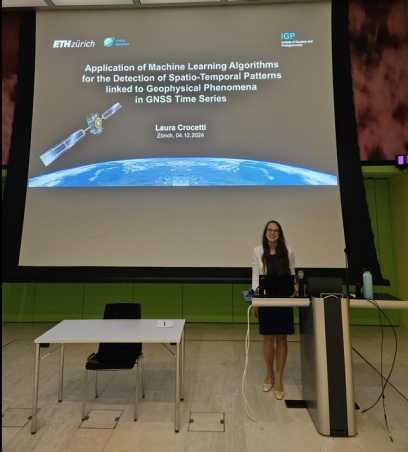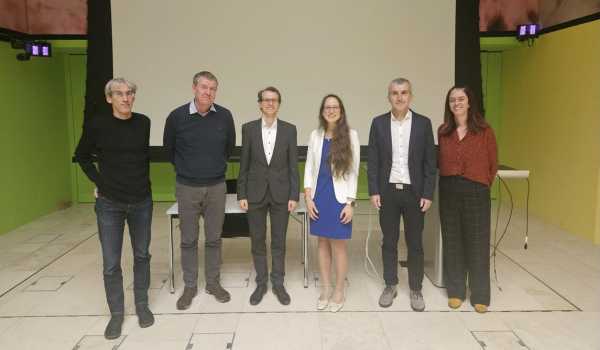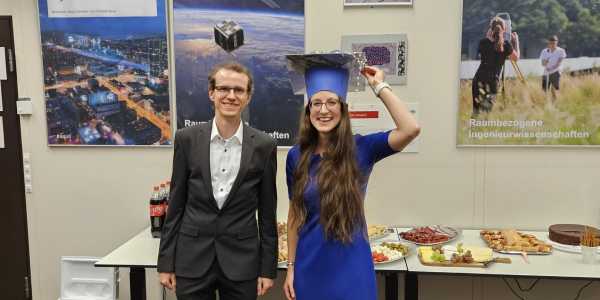Laura is one of the first doctoral students from the Space Geodesy group.
During her doctoral studies she was supervised by Prof. Benedikt Soja and Prof. Konrad Schindler and had collaborations with several researchers around the world. In her thesis, she investigated the application of machine learning algorithms for opportunities and challenges in the field of space geodesy. The focus was on the detection of spatio-temporal patterns linked to geophysical phenomena in GNSS observation and products.
The thesis covered many new and innovative approaches to either correct shortcomings in today's GNSS data products or to provide data-driven models that can be used in further applications to replace or augment existing models. Three major research areas were identified in which the use of machine learning was thoroughly studied and compared with state-of-the-art procedures:
- Discontinuity Detection in GNSS Station Coordinate Time Series
- Improved Troposphere Models and Predictions
- Improved Modelling of GNSS Station Displacements
This thesis is a meaningful contribution to space geodesy by demonstrating the successful application of machine learning techniques in various research areas and showcasing their potential to improve geodetic observations and products and to enhance our understanding of the complex Earth system.
After the Ph.D. defense, there was a nice apéro with colleagues and family to celebrate Laura's achievement.


